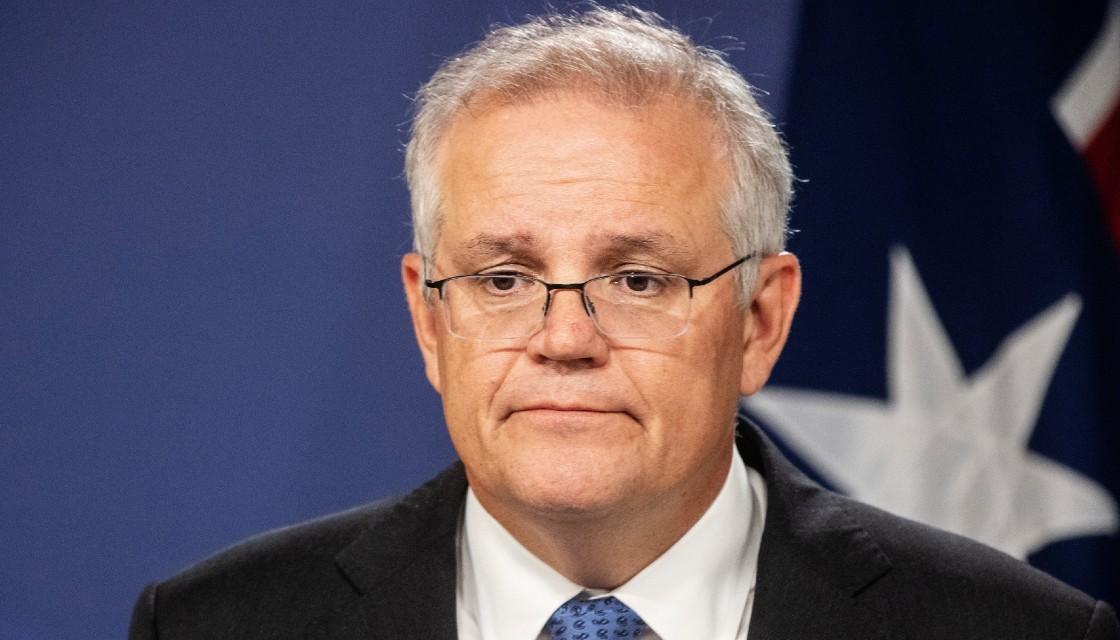
Australian officials will boycott the Beijing Winter Olympic Games, following in the footsteps of the United States.
Australian Prime Minister Scott Morrison says athletes will be able to compete despite the diplomatic ban. He said the decision should come as "no surprise" given the poor relations currently between Australia and China.
Mentioning abuses of Uighur Muslims in the Chinese province of Xinjiang, Morrison said Australia would like to see "those issues resolved, they’re not resolved and Australia will not step back from the strong position we had standing up for Australia’s interest".
The US confirmed on Tuesday that it would not send government officials to next year's Winter Olympic Games given what it calls the ongoing "genocide against minority Muslims" in Xinjiang. Athletes will still be able to attend and White House Press Secretary Jan Psaki said they had the country's "full support".
New Zealand is not sending ministers to the event, though that decision was made in October and largely due to COVID-19 making the logisitics of travel difficult, Sports Minister Grant Robertson said on Tuesday. However, diplomats could possibly still attend.
The Ministry of Foreign Affairs and Trade told Newshub on Tuesday that the New Zealand Olympic Committee had sought accreditation for some embassy staff - including Aotearoa's Ambassador to China - in order to provide consular support should it be needed.
It said, "no decisions have been taken on attendance beyond this".
Chinese Foreign Ministry spokesperson Zhao Lijian was asked overnight what it made of New Zealand not sending ministers to the Games and if it was concerned about a domino effect.
"On your first question, the Beijing Winter Olympic Games is a grand gathering of winter sports athletes and fans all over the world," Zhao replied "We welcome athletes from all countries, including New Zealand, to participate in the Beijing Winter Olympics. We hope that all parties can practice the Olympic spirit of 'together' and stop politicising sports."
"On your second question, as we stated on various occasions, it is athletes, instead of politicians clamouring for 'boycott' out of selfish political gains, that should be in the spotlight. In fact, no one would care whether these people come or not, and it has no impact whatsoever on the Olympics to be successfully held by Beijing."
While Zhao said "no one would care" if politicians come or not, he also told reporters on Wednesday that the United States will "pay a price for its erroneous actions".
"The US should stop politicising sports, and stop disrupting and undermining the Beijing Winter Olympics, lest it should affect bilateral dialogue and cooperation in important areas and international and regional issues."
Morrison said on Wednesday that any retaliation from China would be "utterly unacceptable".
"I’ll always stand up for Australia’s interests and what Australians believe is right, and we are living in an uncertain time."
The Australian Prime Minister still wished the International Olympic Committee (IOC) well with the games and looked forward to Brisbane hosting the summer Olympics in 2032.
"It’s been a very good partnership. So I want to wish the IOC all the very best for those Games. I want to wish all the athletes a very successful Games and the officials who make these great sporting events spectacular."
Thomas Bach, the President of the IOC who has mostly waved off questions about China's suitability to hold the event given its human rights issues, questioned on Wednesday why it was his organisation's "responsibility" to get involved.
"Our responsibility is to run the Games in accordance with the Olympic Charter... and to bring together the athletes from 206 teams and the IOC refugee team under one roof," he said.
"Going beyond this, expecting that Olympic Games can fundamentally change a country, its political system or its laws, is a completely exaggerated expectation. The Olympics cannot solve problems that generations of politicians have not solved."


